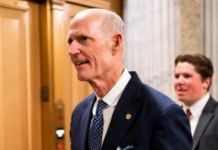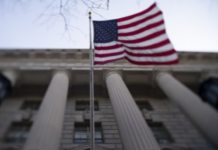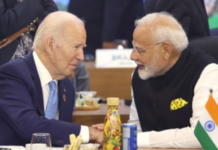Toronto— U.S. President Donald Trump’s approach to South Asia has introduced strategic contradictions that have strained relations with India, according to a report cited on Saturday.
While the U.S. continues to emphasize India’s importance in the Indo-Pacific and seeks its partnership in the region, several policy decisions under the Trump administration have conflicted with India’s core strategic interests, wrote Imran Khurshid, Associate Research Fellow at the International Centre for Peace Studies (ICPS) in New Delhi, in an article for the Eurasian Times.
Key points of tension include the White House’s recent invitation to Pakistan’s army chief, General Asim Munir, support for an IMF bailout to Pakistan during Operation Sindoor, and repeated gestures of praise towards Pakistan’s leadership. These moves, according to Khurshid, have emboldened Pakistan’s strategic posture and allowed it greater latitude in opposing India across diplomatic and military fronts, particularly during sensitive regional developments.
“If the U.S. wants India to be a serious and independent partner in the Indo-Pacific, it must stop undermining India in South Asia and respect its sensitivities,” Khurshid wrote. “It must abandon fragmented regional frameworks and adopt an integrated strategy that strengthens India’s position.”
Khurshid warned that continued contradictions in U.S. policy could damage not only bilateral ties but also America’s broader global standing. “Trump’s approach may risk isolating the U.S. and undermining the very leadership role it seeks to maintain.”
The report contrasts current U.S. actions with the approach of previous administrations. Leaders such as Bill Clinton, George W. Bush, and Barack Obama are credited with building trust through a de-hyphenated policy—treating India and Pakistan independently—and respecting India’s red lines on issues like Kashmir and strategic autonomy.
In contrast, Trump’s transactional foreign policy, focused heavily on trade imbalances, tariffs, and bilateral leverage, has caused unease in New Delhi, the article notes.
This unease has been heightened by Trump’s recent decision to impose a 25% tariff on Indian goods, effective August 1, 2025, and threats of secondary sanctions tied to India’s continued imports of Russian oil and defense equipment.
According to Khurshid, such actions risk weakening key strategic frameworks like the National Security Strategy and the Indo-Pacific Strategy, which require consistent implementation to be effective.
“These developments have not only disrupted routine diplomacy but may also undermine the long-term foundations of U.S.–India strategic cooperation,” the report concludes. (Source: IANS)














